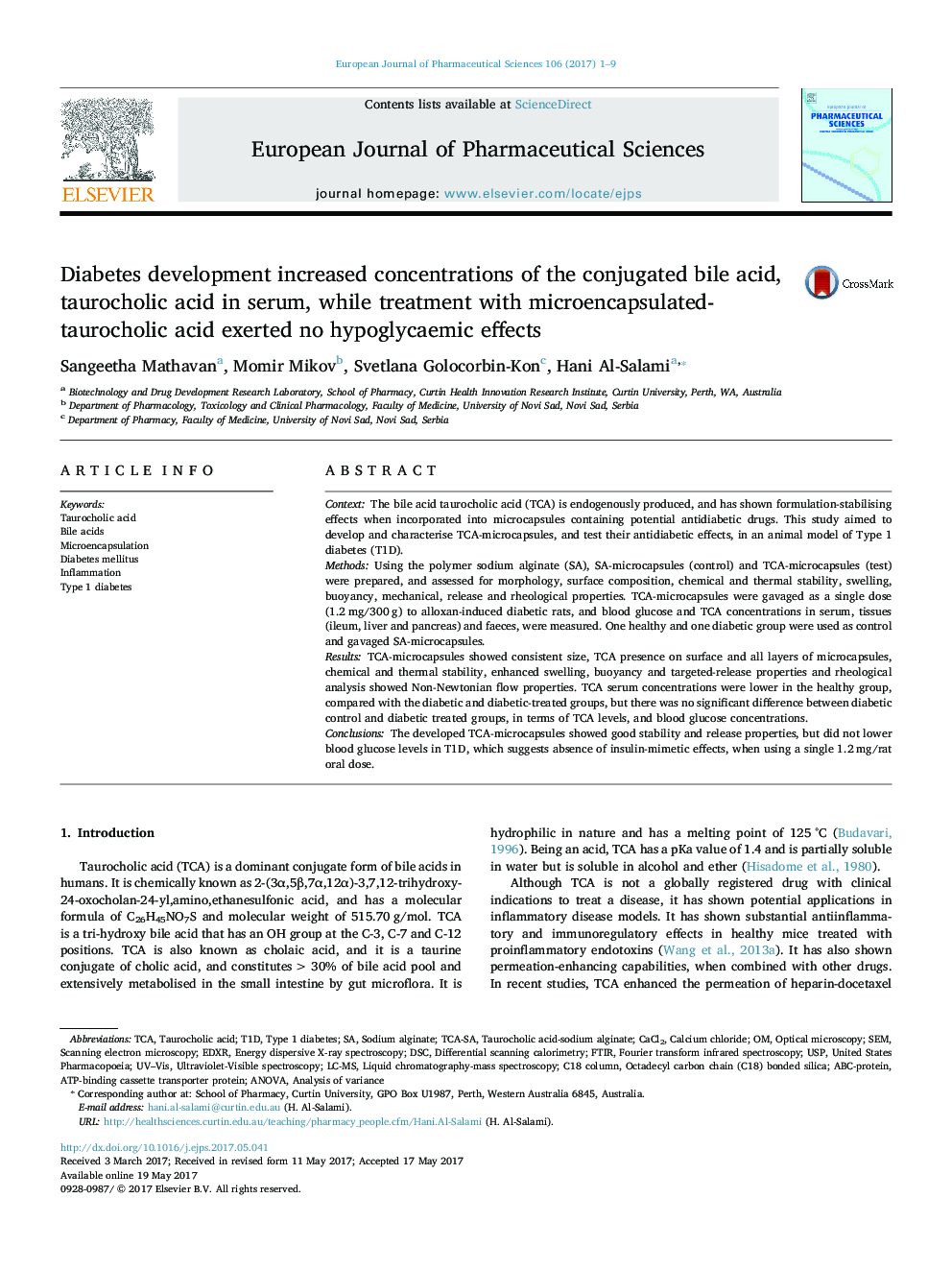| Article ID | Journal | Published Year | Pages | File Type |
|---|---|---|---|---|
| 5547720 | European Journal of Pharmaceutical Sciences | 2017 | 9 Pages |
ContextThe bile acid taurocholic acid (TCA) is endogenously produced, and has shown formulation-stabilising effects when incorporated into microcapsules containing potential antidiabetic drugs. This study aimed to develop and characterise TCA-microcapsules, and test their antidiabetic effects, in an animal model of Type 1 diabetes (T1D).MethodsUsing the polymer sodium alginate (SA), SA-microcapsules (control) and TCA-microcapsules (test) were prepared, and assessed for morphology, surface composition, chemical and thermal stability, swelling, buoyancy, mechanical, release and rheological properties. TCA-microcapsules were gavaged as a single dose (1.2Â mg/300Â g) to alloxan-induced diabetic rats, and blood glucose and TCA concentrations in serum, tissues (ileum, liver and pancreas) and faeces, were measured. One healthy and one diabetic group were used as control and gavaged SA-microcapsules.ResultsTCA-microcapsules showed consistent size, TCA presence on surface and all layers of microcapsules, chemical and thermal stability, enhanced swelling, buoyancy and targeted-release properties and rheological analysis showed Non-Newtonian flow properties. TCA serum concentrations were lower in the healthy group, compared with the diabetic and diabetic-treated groups, but there was no significant difference between diabetic control and diabetic treated groups, in terms of TCA levels, and blood glucose concentrations.ConclusionsThe developed TCA-microcapsules showed good stability and release properties, but did not lower blood glucose levels in T1D, which suggests absence of insulin-mimetic effects, when using a single 1.2Â mg/rat oral dose.
Graphical abstractDownload high-res image (123KB)Download full-size image
